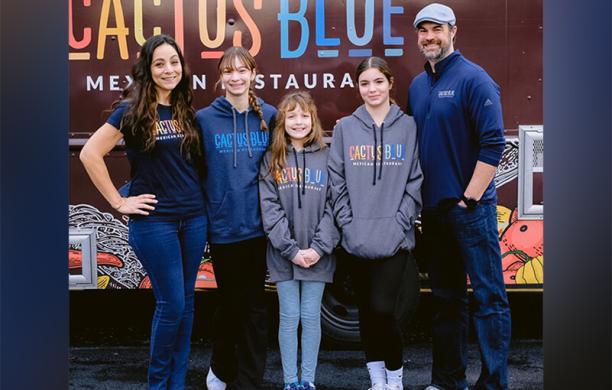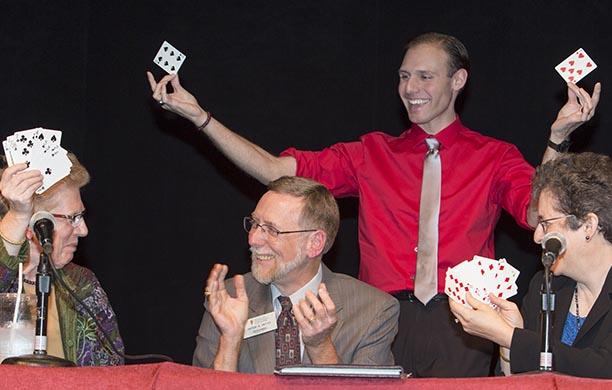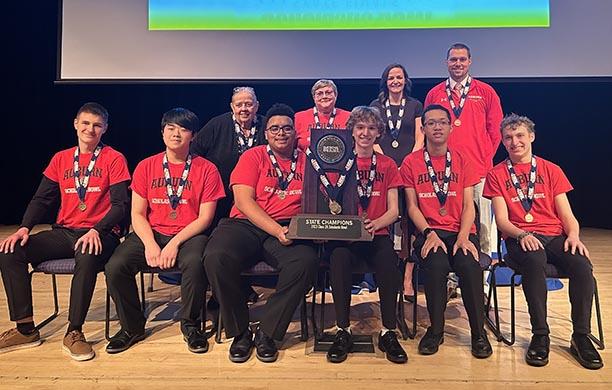Moonlighting. It doesn’t have the bad rap it used to. Today people find ways to make a living and make a life.
Moonlighting is our series about the radically interdisciplinary lives of Lehigh alumni who are successful in two professional areas, and where a secondary “job” is primarily fun and fulfilling.
In this edition we meet a hotelier who also wins endurance sports car races.
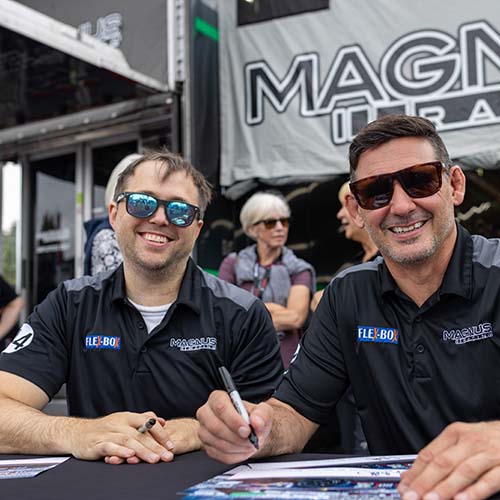 John Potter ’04
John Potter ’04
Economics and political science
Start in racing
I was not exposed to racing as a child and was not on the Formula SAE team at Lehigh. I came to racing after Lehigh. It began when I was 23 years old and went to Skip Barber Racing School at Lime Rock Park in Connecticut. I did make a pitstop at Lehigh on my way there to say hello to some friends. I wasn’t a natural, so no one who saw me training would say I was born to do this. But success comes as a result of work. Too much praise can be a demotivator. Rather than look for praise, I have relied on being motivated and a willingness to work hard.
Focus on real estate
I have developed and currently manage just over one million square feet of real estate space — a mix of hospitality, industrial, retail, and self-storage. My real estate career happened simultaneously as my interest in racing. While racing depletes resources, real estate can produce a positive return, so my two interests balance each other out. Racing always helped the motivation and forced the need to excel on the real estate side.
I started in commercial real estate in 2008 during the Great Recession. I took advantage of some opportunity amid the chaos: my first coming from another developer who was over extended, and I stepped in. Some real estate investments, like self-storage, held up well during that time.
I then began to branch out. As a driver on a race team, I spend many nights in hotels. I thought I could do it better based on what I was experiencing. Getting into the hotel industry is challenging, but an opportunity presented itself where my team practices. I had an idea to develop and operate a hotel near my home track in Utah. Based on demand, I built a Comfort Inn, part of Choice Hotels, a multinational hospitality company.
I now operate seven hotels — five are open, one is under construction, and one is breaking ground. They are part of the Choice, Marriott, and Hilton families. All the properties are in Utah since it is a market I understand well.
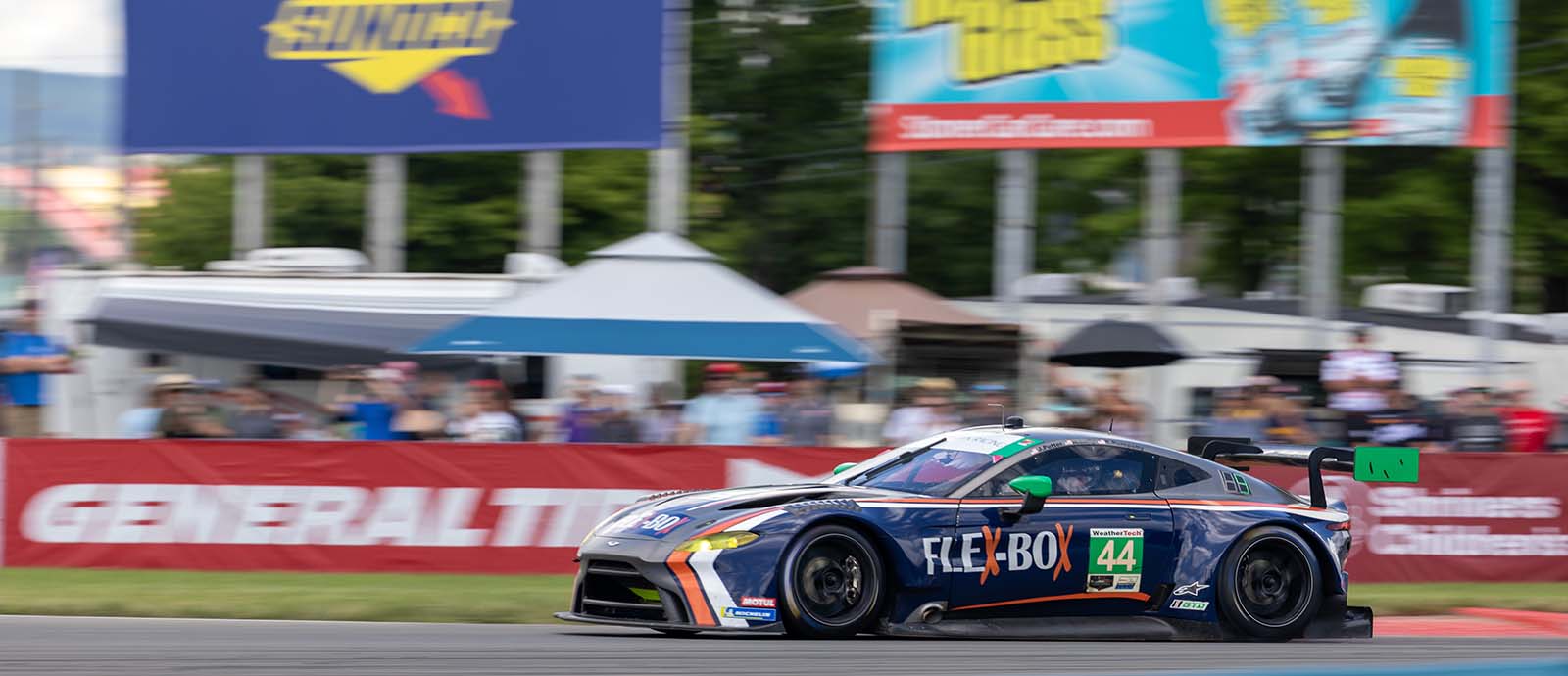
Success in racing
There were two ways to appreciate sports cars — as a collector and as a racer. I decided I didn’t want to be a collector. Well, except for trophies. I built up a race team, Magnus Racing, and we won the 24 Hours of Daytona, which is the premiere sports car race in the United States, in 2012 and 2016. We won the 12 Hours of Sebring in 2014. These are epic endurance races. Teamwork is the key to our success. While fatigue can be a factor in success, maintaining focus comes from work and training.
Racing is like playing a violin at a construction site. The beauty and precision of the sound despite the literal and metaphysical noise around you. It is physically demanding and emotionally chaotic. But that’s what I love about it. Ninety-nine percent is precision craftwork. All that you do to keep the other guys behind you. The speed is irrelevant — you get used to it and only notice it when you slow down. Every turn has an optimal line to follow that you never fully realize. The perfect lap doesn’t exist but is out there.
Failure in racing
In 2024, 35 cars will run at Daytona in our class. Thirty-four will lose. It is up to the team and drivers. We have 16 people on our crew at Magnus Racing. In addition to our wins, we have finished second place at Daytona three times — two of those in the last two years. You can get spoiled by the positive results, but the tough times are always knocking at the door.
Racing has taught me how to lose — to find the determination to learn and then try again. In 2015, I made a risky pass attempt in turn three and was hit by another driver. In 2013, we were first place in points but got taken out by another driver in a race, which dropped us down to second place in the standings. You let yourself and your team down. It happens. Still, you get back in the seat, train hard, and try to be as prepared as you can be.
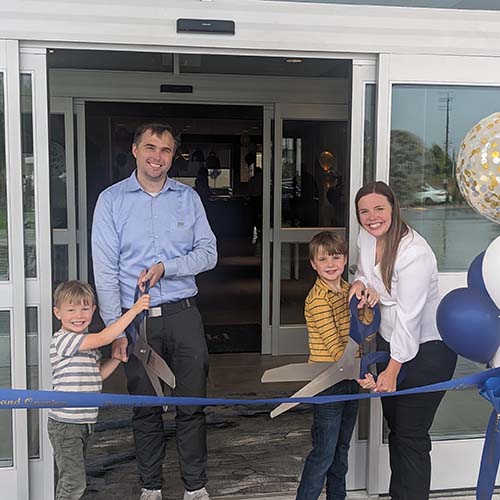 Time at Lehigh
Time at Lehigh
The best thing I got from Lehigh is my spouse, Emily Aagaard ’04. I grew up in Missouri. She grew up in Utah. I followed her out here to Salt Lake City, where we raise our two wonderful boys.
Lehigh did prepare me on a macro and micro level, to borrow terms from my degree. At the macro level, I built foundational skills that I could translate into my careers in real estate and racing. I can manage the financing as well as network, build relationships, and create consensus. I am in the business of people — creating experiences for guests in our hotels and finding sponsors for our team. This requires hard and soft skills.
At the micro level, Lehigh was impactful. In high school, I visited campus and sat in on a Money and Banking class. The professor, J. Richard Aronson, spoke with me afterwards. When I attended Lehigh, I took that class with Dr. Aronson, and he remembered me then and I got to know him. I took more classes with him and eventually became a teaching assistant for him. I learned a lot, both academically and about life, from him and others at Lehigh and am very grateful.
Intersections
Our team currently races an Aston Martin. We compete against Porsche, BMW, and Mercedes, all factory purpose-built GT race cars. Our Aston Martin Vantage GT3 races in the IMSA WeatherTech SportsCar Championship Series under our Magnus Racing banner, number 44. Four was a lucky number for me. One of my sponsors is based in China. In their culture, four is an unlucky number. In China 4 means death, so 44 is double death.
There is a certain danger and sexiness to this work. Those traits can help build relationships as I take people to the track. It’s a memorable experience for them and allows me to make connections and build networks. The guys who knew me at Lehigh would not say those were skills of mine in college. But I have grown and refined those skills over time.
What’s Next
At some point, Roger Penske ’59, Lehigh’s greatest sports car driver and owner, had to make a choice: keep driving or run the business. For now, I want to keep driving, but I’m still balancing that with family and, of course, running the businesses full time.
